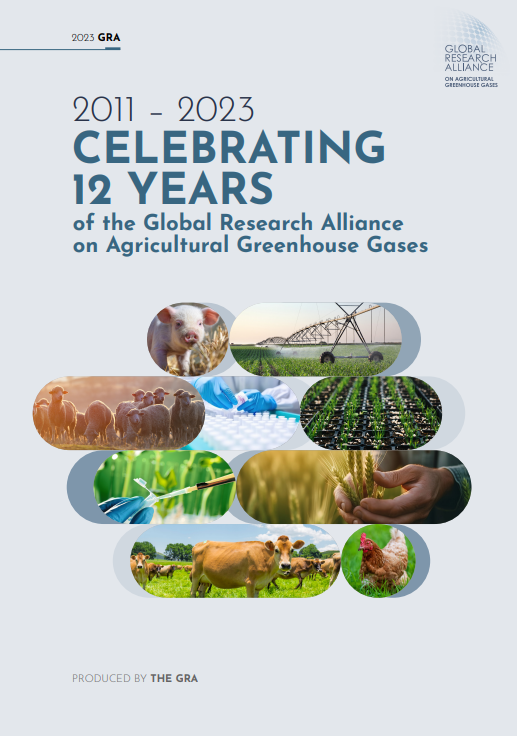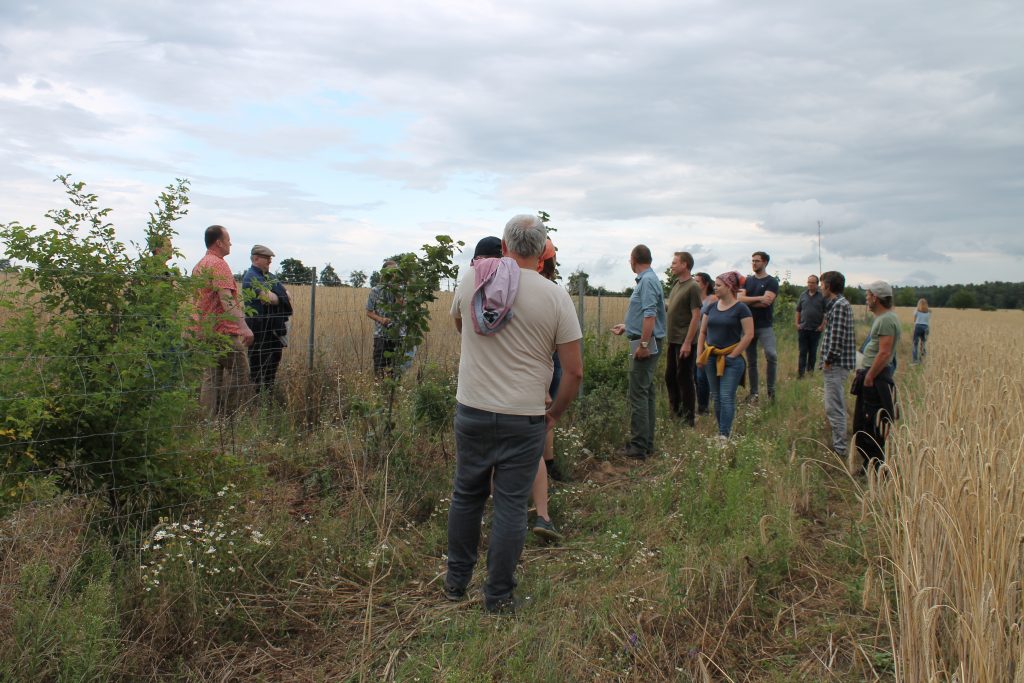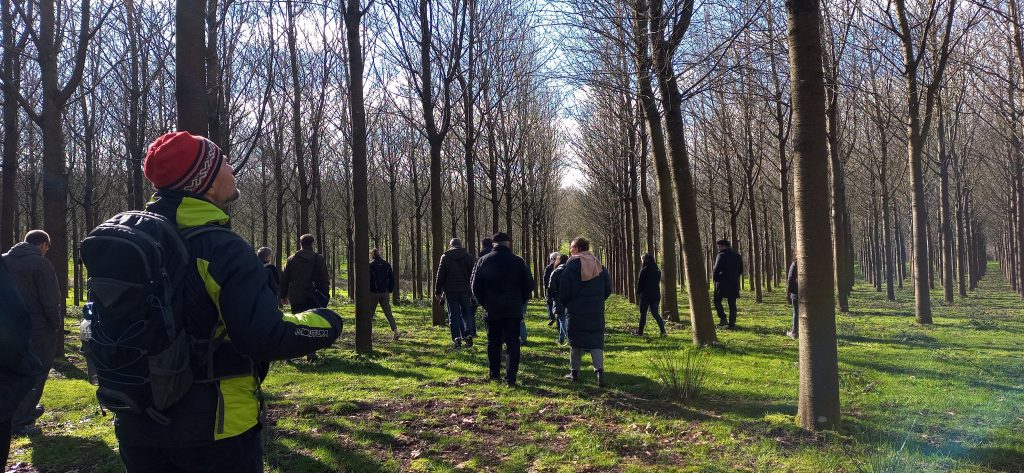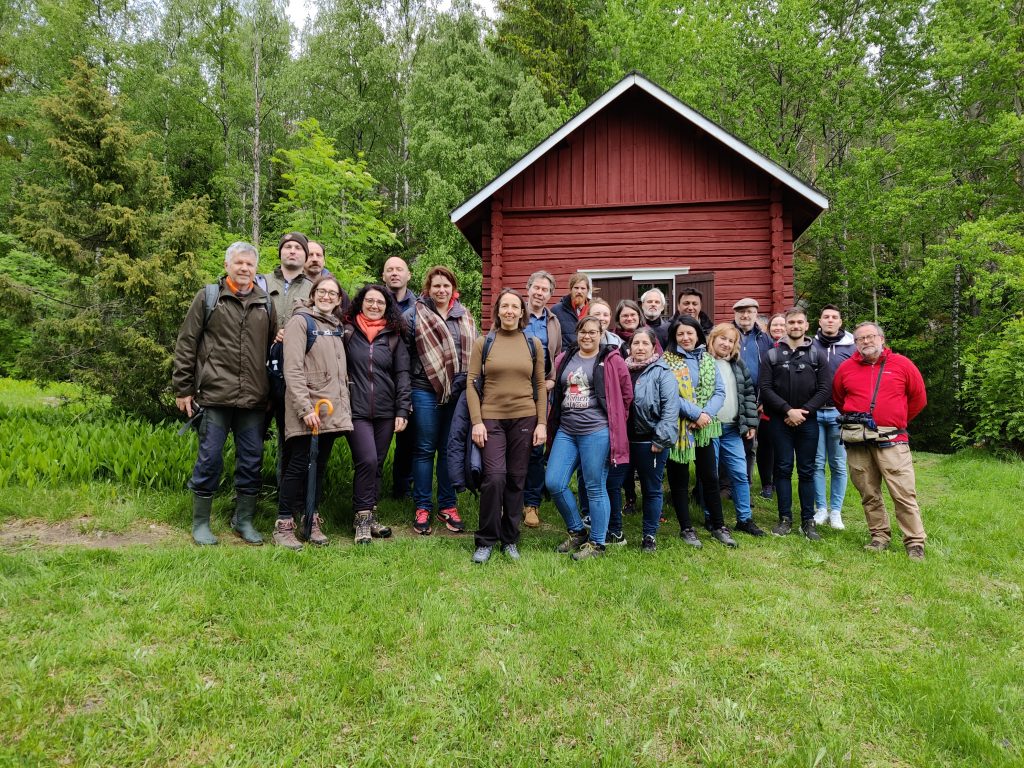FONTAGRO’s 2024 Research Call in Collaboration with New Zealand
Innovation for Sustainable Agriculture in Latin America and the Caribbean!
Spanish version listed below.
📅 Deadline: April 3, 2024, 3 pm (US Eastern Time)
🌍 Scope: Latin America and the Caribbean
🤝 Partners: FONTAGRO and New Zealand
📢 Announcement of selected projects: August 2024
Objective: Develop regional projects that provide concrete evidence on promoting interconnected, efficient, sustainable, and resilient production systems through knowledge, science, technology, and innovation, resulting in a reduction of greenhouse gas (GHG) emissions.
For those interested, please see below and have a look at this website.
Closing date: 29 February 2024
Location: Sao Paulo, Brazil
Please see below for an opportunity for a Post-Doctorate Scholarship offered by FAPESP. The details of the scholarship can be found here.
For those interested, have a look at this website.
Call for abstracts:
The XXII International N Workshop 2024
Resolving the Global Nitrogen Dilemma – Opportunities and Challenges
17th – 21st June 2024 in Aarhus, Denmark
Sign-up here: www.nworkshop2024.org
The deadline for abstract submission is the 31st of January 2024.
Email: [email protected]
In 2024, Aarhus University has the honor of hosting the next N Workshop. Join us for five exciting days, where we will work towards resolving the global nitrogen dilemma. How do we reconcile the need for sufficient N inputs to ensure crop productivity and human nutrition, while decreasing N losses leading to environmental pollution and associated threats to food security and ecosystem health?
We will address these global issues in six regular and at least three special sessions, together with seven interesting keynotes and two roundtables, and the opportunity to visit field trials and research facilities.
Sessions:
• How to increase nitrogen use efficiency
• Reducing nitrogen losses
• Nitrogen recycling
• Incentives for good nitrogen management
• Food systems
• Livestock in agricultural systems from a nitrogen perspective
Keynote speakers:
• Wim de Vries (Wageningen University): Spatial variation in the cooling and warming impacts of anthropogenic nitrogen at global scale
• Ute Skiba (UK Centre for Ecology & Hydrology): Nitrogen options in Europe and Southern Asia
• Laurent Philippot (French Institute for Agriculture, Food and the Environment – INRAE): Bridging microbial community ecology and N-cycling
• Xin Zhang (University of Maryland Center for Environmental Science): Decarbonization in a eutrophic world
• Adrian Leip (European Commission – Bioeconomy): The role of nitrogen in the food systems and bioeconomy transformation
• Josette A. Garnier (National Center of Scientific Research – CNRS): Towards food and energy self-sufficiency: different degree in circularity
• Cecile A.M. de Klein (AgResearch): The role of nitrogen management in lowering greenhouse gas emissions from grazed livestock systems
For more information, please check out our website: www.nworkshop2024.org
The Global Research Alliance (GRA) is very pleased to welcome Tonga as our 68th Member Country!
Tonga is the third Pacific region country to join GRA following Samoa and Fiji’s membership in 2023. Tonga’s participation in the GRA will be coordinated through the Ministry of Agriculture, Food and Forests (MAFF) and they have outlined their priority areas in line with their existing National Circular Economic Systems project with a focus on climate resilience. “Being a member of the GRA will generate a huge advance in Tonga’s drive to cater for the climate change mitigation and adaptation as well as the recoveries from the rising damage and loss from the frequent disasters.”
We look forward to working together to grow more food without growing more greenhouse gases.
For more information on the GRA or how to become a member country please contact the GRA Secretariat.
Closing date: 8 January 2024
Location: Zurich, Switzerland
For information about this role see below and on this website.
The Animal Nutrition group within the Institute of Agricultural Sciences at ETH Zurich investigates nutrient digestion metabolism, and nutritional physiology. The group applies hypothesis-driven experimental approaches and data-driven approaches to better understand the biological function of livestock animals and to develop strategies for improving the sustainability of livestock systems. They are looking for a motivated, team-oriented researcher who is eager to go beyond the state-of-the-art and work on cutting-edge research projects. The position is based at ETH Zurich, Switzerland. You will join the Animal Nutrition group led by Mutian Niu.
Closing date: 4 January 2024
Location: Teagasc, Ireland
For information about this role see below and on this website.
The international RUMEN Gateway Flagship project brings together a multidisciplinary team of experts, including microbiologists, animal scientists, and bioinformaticians, many of whom form part of the Rumen Microbial Genomics network of the Global Research Alliance on Agricultural Greenhouse Gases.
We are excited to share these recent updates from the project:
A global research project led by Queen’s University Belfast and involving 24 institutions and universities worldwide, will explore the microbial world within rumen, a complex and little-studied ecosystem in livestock. Learn more here.
Global Methane Hub Announces the Enteric Fermentation Research & Development Accelerator, a $200M Agricultural Methane Mitigation Funding Initiative. Learn more here.
The Ban Ki-moon Centre for Global Citizens (BKMC) convened a coalition of key voices from governments, science, farming, civil society, and youth at its COP28 side events, urging world leaders to address the immense and precarious agricultural adaptation finance gap.
On December 9th, 2023, together with the German Ministry for Food & Agriculture, the BKMC organized the COP28 side event “Joint work for climate action in agriculture and food systems” to highlight how transforming agriculture and food systems benefits the most vulnerable. The COP28 side event at the German Pavilion, emphasized the pivotal role of international collaboration for knowledge exchange, research, and innovation in accelerating agricultural mitigation and adaptation.
The panel discussion welcoming Claudia Müller, Parliamentary Secretary of State of the German Federal Ministry of Food and Agriculture, Maria Helena Semedo, FAO Deputy Director-General, Harry Clark, Special Representative Global Research Alliance on Agricultural Greenhouse Gases (GRA) and Elizabeth Nsimadala, smallholder farmer from Uganda and President Eastern Africa Farmers Federation showcased the critical need for balancing adaptation and mitigation in agricultural practices to achieve the targets of the Paris Agreement and increasing resilience of smallholders to climate change. Collaboration, innovation, targeted finance and access to resources were identified key enablers for transforming agri-food systems to become more sustainable while empowering smallholder farmers with the necessary tools to sustain their livelihoods.
Learn more and watch a recording of the event HERE.
We have a new report celebrating 12 years of the GRA available to download and share. Check it out here or by clicking on the image below.

We are excited to announce that 40 PhD candidates from low- and middle-income countries will receive scholarships in Round 6 of the Climate, Food and Farming – Global Research Alliance on Agricultural Greenhouse Gases Development Scholarships programme (CLIFF-GRADS). Along with the 40 students above, 4 awardees from previous rounds–who have been reallocated to new projects–will also start their research stays.
The 44 Round 6 CLIFF-GRADS fellows come from 19 countries from Asia, Africa, Latin America, and the Pacific. During 2024, each fellow will undertake applied research on quantifying and mitigating agriculture greenhouse gas emissions at 29 institutes in a total of 21 countries.
The full list of awardees, their research projects and the host institutes where the fellows will be based during their research stays can be found here.
Dr. Harry Clark, the GRA’s Special Representative and Ms. Cheryl Jeffers, Director of the Caribbean Cooperative Measurement Reporting & Verification Hub (MRV Hub) met recently at COP 28. They discussed options to assist Caribbean countries to increase their capacity in agricultural greenhouse gas measurement reporting and verification and establish a regional greenhouse gas inventory community of practice. The proposal would be implemented in partnership with the GRA through the MRV Hub’s recently established Agriculture Work Crew.



